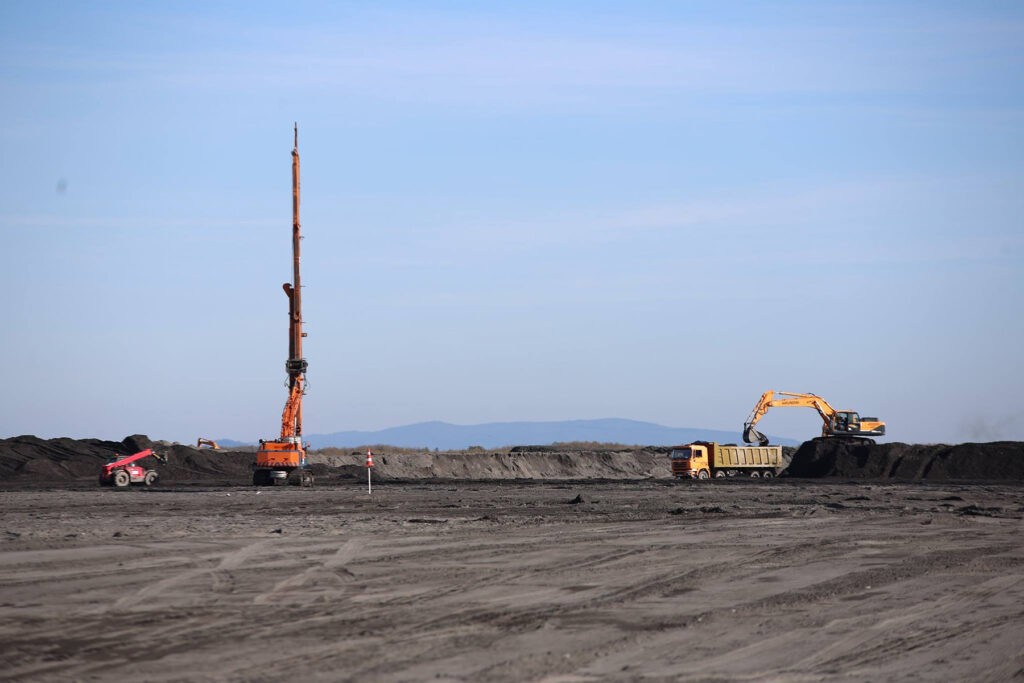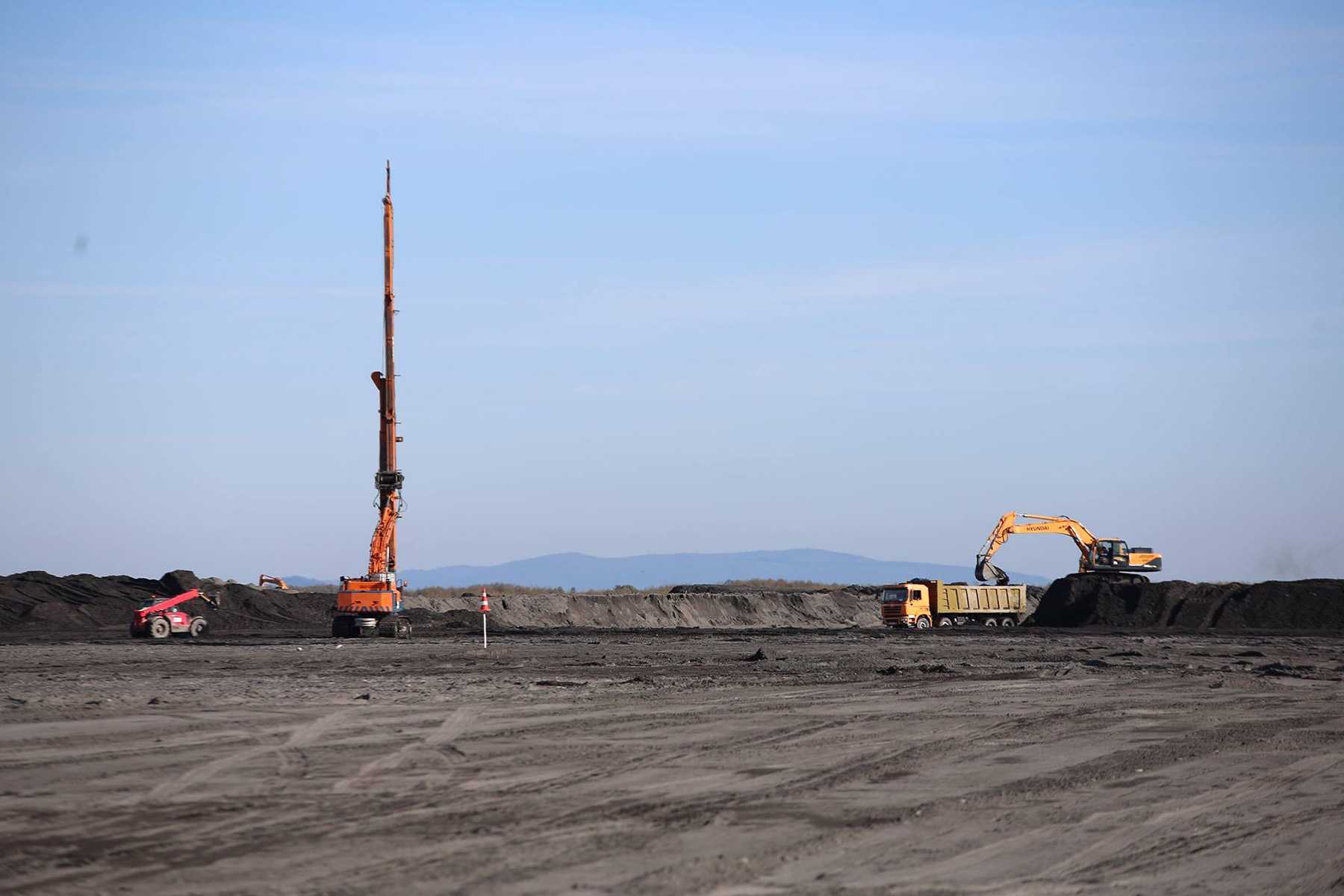
The Georgian government has announced Belgian company Jan De Nul as the winner of a tender for the development of the Anaklia Deep Sea Port in western Georgia.
The announcement was made by the Ministry of Economy on Thursday, and confirmed by Prime Minister Irakli Kobakhidze.
The Economy Ministry stated that Jan De Nul was one of four companies that applied for the tender, all of them ‘European’, with ‘the best international reputation’.
In May, the ministry listed Jan De Nul, Boskalis, DEME, and Van Oord as candidates for the project.
In a press briefing on Thursday, Economy Minister Levan Davitashvili stated that the government would enter a contract with Jan De Nul in August.
‘I think it will take several weeks to see active construction work in the Anaklia territory from September’, he said, adding that the port is expected to receive ships in 2029.
In late May, the Ministry of Economy announced that a Chinese-led consortium, the majority state-owned China Communications Construction Company (CCCC) and China Harbor Investment (Singapore), had been selected as the private partners in the project, receiving 49% of the port’s shares. They were the only company to submit a bid to co-own the port.
Several of CCCC’s subsidiaries are subject to US sanctions.
RFE/RL has reported that the government will officially sign the contract with the consortium in the near future.
The government’s announcement that the Chinese-led consortium had been selected was met with criticism domestically, with critics warning that seeking closer ties with Beijing could damage Georgia’s standing with the West.
However, senior Georgian Dream officials have repeatedly stated that they see no danger in attracting Chinese investment in Georgia.
[Read more: Georgia seeks closer ties with China]
On 3 June, Myth Detector published a report accusing the Ministry of Economy of distorting facts by stating that CCCC was not subject to US sanctions.
‘In fact, the company is on the consolidated sanctions list of the US Treasury Department’s Office of Foreign Assets Control due to the restrictions imposed. The company and its subsidiary CCCG are mentioned as sanctioned entities by the US Embassy in Georgia and the spokesperson of the US State Department’, read their report.
A troubled history
The Anaklia Deep Sea Port’s development and construction has been marred with controversy from the start.
The port was first announced in 2014, with development being handled by TBC Bank co-founder Mamuka Khazaradze. The project’s development was put on hold in 2020.
Khazaradze founded his own political party, Lelo, on the eve of the 2020 elections, shortly after accusing the government of pressuring the Anaklia Development Consortium, which he led, into sabotaging its role in the Anaklia Deep Sea Port project.
At the time, the Georgian government accused Khazaradze’s Anaklia Development Consortium of not fulfilling its contractual obligations.
Khazaradze accused the government of deliberately disrupting the project. His consortium filed a lawsuit at the International Court of Arbitration, which on Monday ruled in favour of the government.
[Read more: Georgian government to announce new bidding for Anaklia port after pulling contract with investor]
In a statement issued following the ruling, the Anaklia Development Consortium expressed its disappointment with the court’s decision.
‘The important issue is the country’s economic development, which lies with its Western future, and getting the Anaklia port built and working as an integrating project with the West, and not with Russia and China’, they said.
In response, Justice Minister Rati Bregadze held a briefing in which he stated that the court refused to force Georgia to pay the consortium $1.5 billion, instead settling on $650,000.
He additionally stated that the arbitrators had unanimously ruled in favour of the government.
The Anaklia Development Consortium hit back with another statement on Tuesday, accusing the government of making statements about the case that gave a ‘misleading picture that flatters Georgia’.
They stated that ‘one of three arbitrators issued a dissenting opinion’ in favour of the consortium, contradicting claims made by Bregadze. They also denied claiming $1.5 billion from the government, stating that they had only requested ‘a third of that amount’.
They additionally said that all government claims against the consortium were dismissed by the arbitrators, and that no damages were awarded to the government.
‘Under this narrow legal view, [the Anaklia Development Consortium] did not prevail. However, the real victims are the people of Georgia, because the government would not commit to the project as it had originally promised’, read the statement.
‘That has cost Georgians tens of thousands of lost jobs, lost economic opportunity, and lost stature in the regional and global economy. And the government still has not come through with a port at Anaklia, despite its many promises – four and a half years after the announcement of the supposed retender, there is still no project.’









